20 Walkway Ideas to Level Up Your Landscaping
Design a charming path through your yard with these attractive and affordable walkway ideas
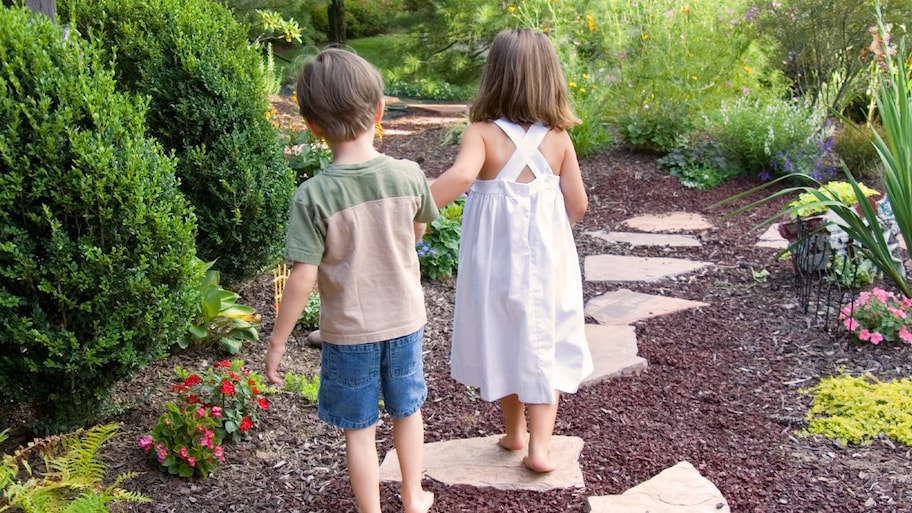

The way you navigate your yard can make a big impression. That’s why it’s important to not only make an outdoor statement with design elements like your front door color and plants, but also with your walkway. Whether you’re guiding visitors to your front door or through the garden, there are many different walkway ideas to consider for your home.
Home walkways range in complexity and style. You can choose a simple DIY trail or hire a hardscaping company for more complex and eye-catching paths that can withstand heavy foot traffic. Whether you’re revamping an existing path or installing a whole new one, these 20 walkway ideas can help you decide on the perfect design and material for your landscaping vision.
Stone Walkway Ideas
Stone is a classic walkway choice. Whether it’s stepping stones, cobblestone, or lava rocks, you’ll surely find something to love about the look of one of these natural-looking options.
1. Stepping Stones
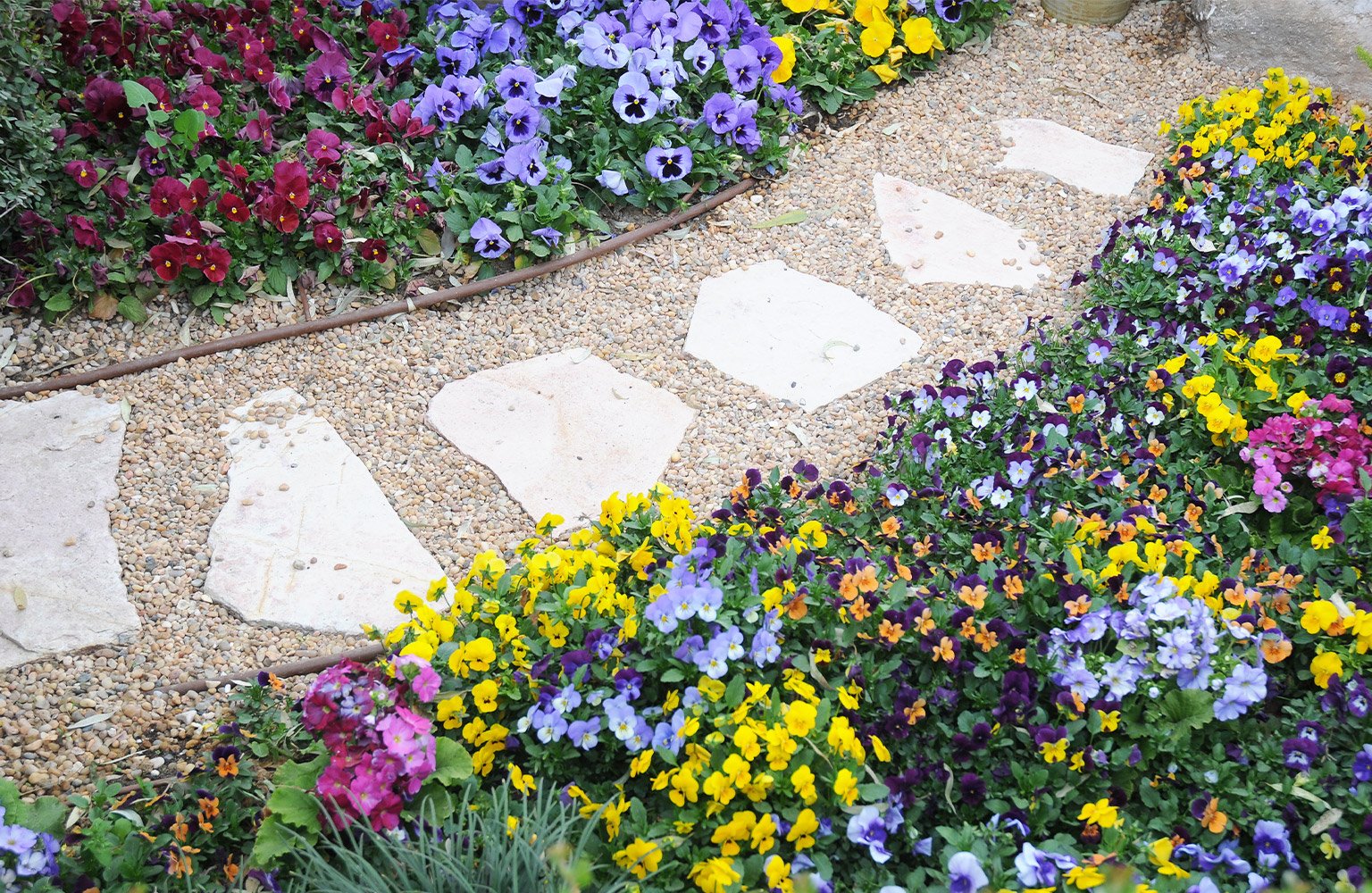
Stepping stones make for an easy DIY walkway project for beginners. Simply lay out stones over grass or use a sod cutter to create holes for them in the ground.
This natural-looking path ranges in price depending on the type of stone you choose, but landscape stepping stones generally cost anywhere from $2 to $20 per square foot. Planting moss or other ground covers in between the stones can help you create an even more natural aesthetic.
2. Crushed Stone
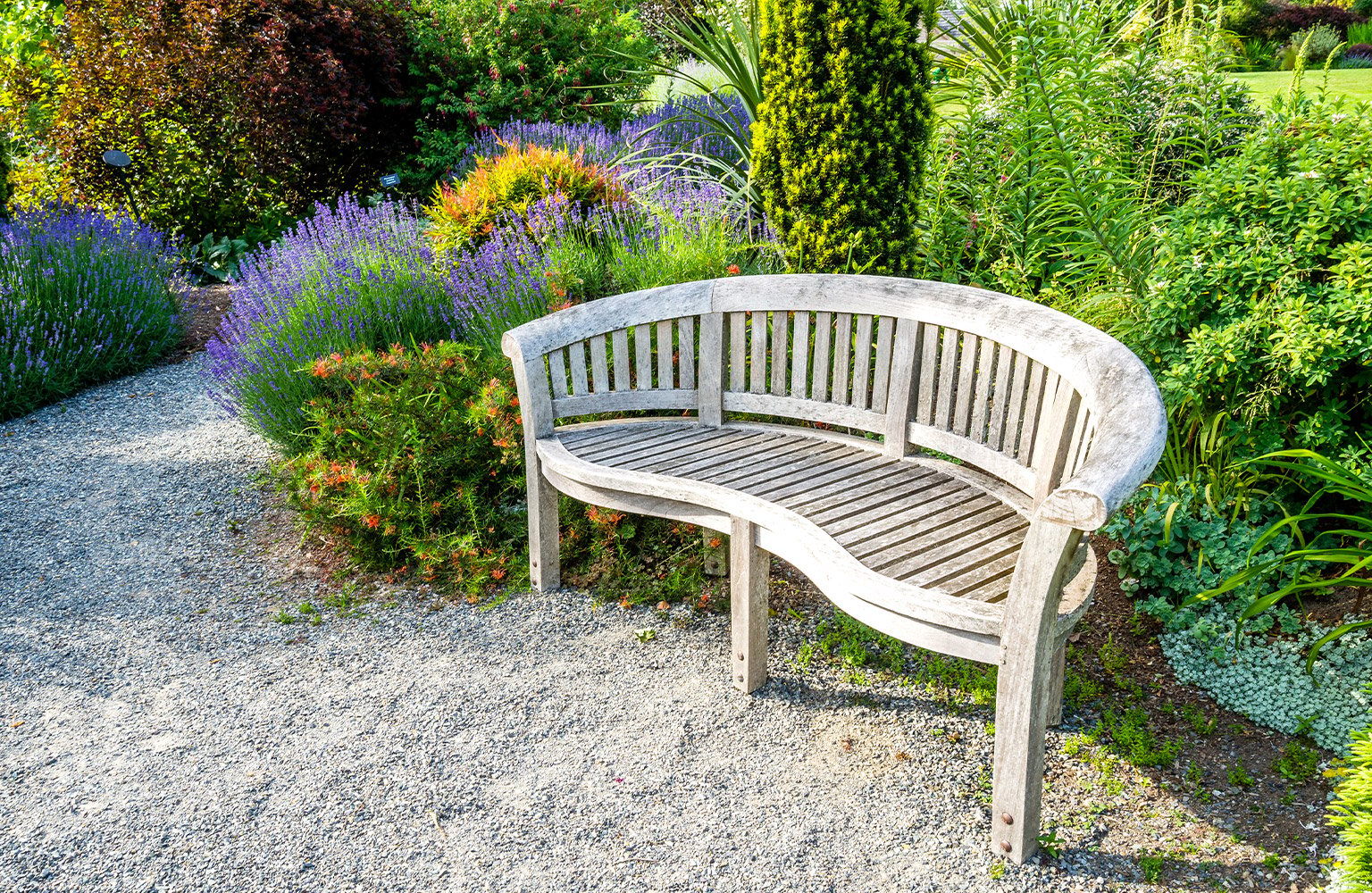
Crushed stone is created with rocks that are broken down by machines. It looks similar to gravel but the stones tend to be a little more angular and rough. You can line a walkway or surround stepping stones with crushed stone for a casual, natural feel. The cost of crushed stone will vary, but typically sits at $2.30 per square foot.
3. Cobblestone

With blocks of stone fitted together to form a patterned path, cobblestone has an old-world charm that fits right in with English Tudor houses and other traditional styles. Just keep in mind that cobblestone is one of the more expensive walkway materials to buy and install, at around $20 to $35 per square foot.
4. River Rocks
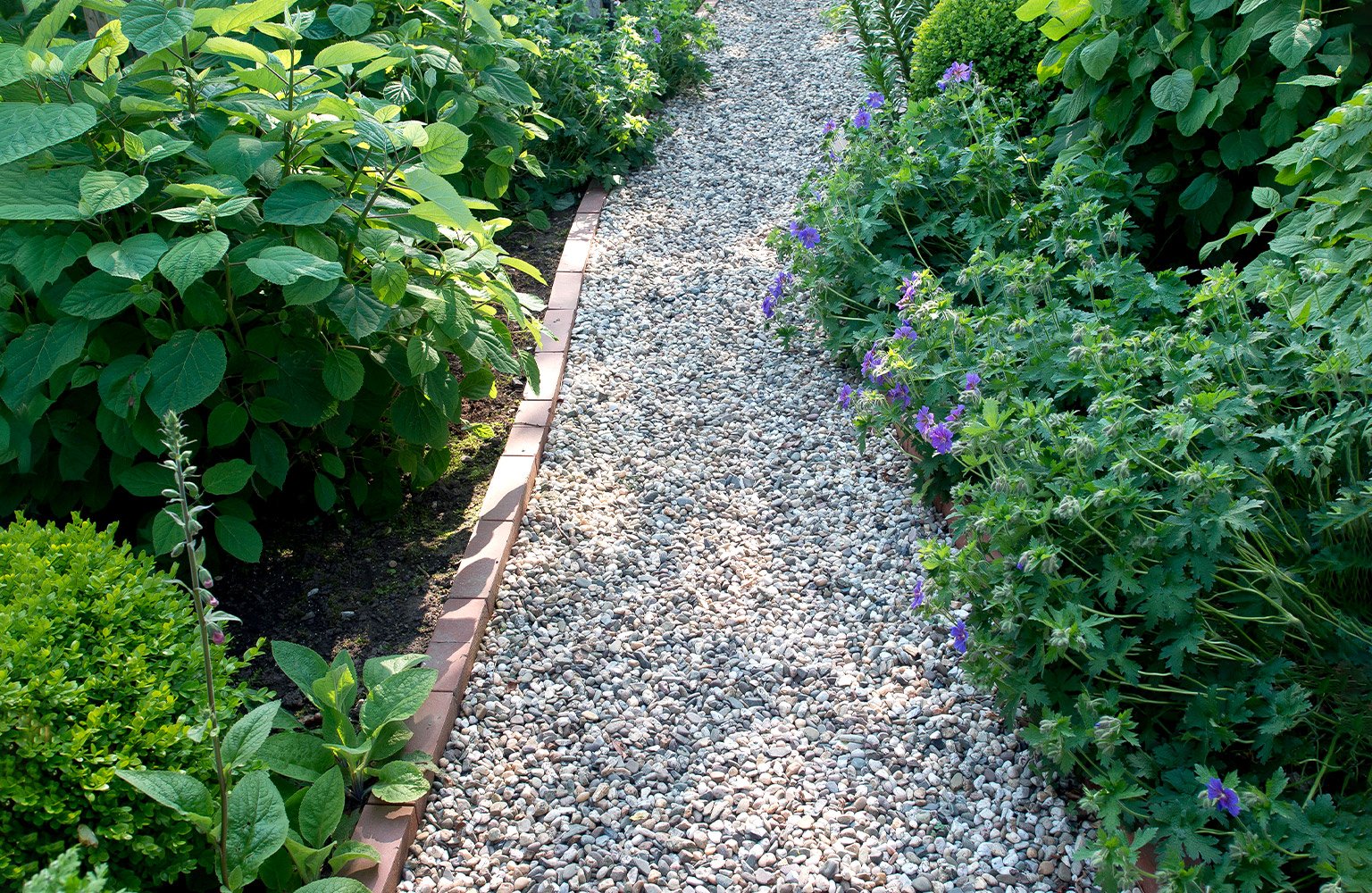
River rocks are smooth and tranquil-looking materials for an outdoor walkway. With a range of colors—from black and white to shades of red—they’ll give your garden trail or backyard path the water-worn aesthetic of a gentle riverbed. River rocks are usually fairly easy to install and are inexpensive to buy in bulk. The cost of river rock delivery is $734 on average.
5. Flagstone

Flagstone is a great option for walkways because it’s durable, attractive, and allows you to create different patterns. There are many types of flagstone, like bluestone and sandstone.
Bluestone is a particularly popular choice because of its cool tint, which looks great around patios and pools. Depending on the material, flagstone can range in cost from $3 to $35 per square foot.
6. Lava Rocks

Often used around fire pits, these light rocks are popular additions to pathways. They come in dark red and black, adding a nice touch of warmth to your yard. Perfect for surrounding pavers, lava rocks can cost $75 per ton, $75 to $110 per cubic yard, or $7 by the bag for smaller quantities.
7. Pebbles
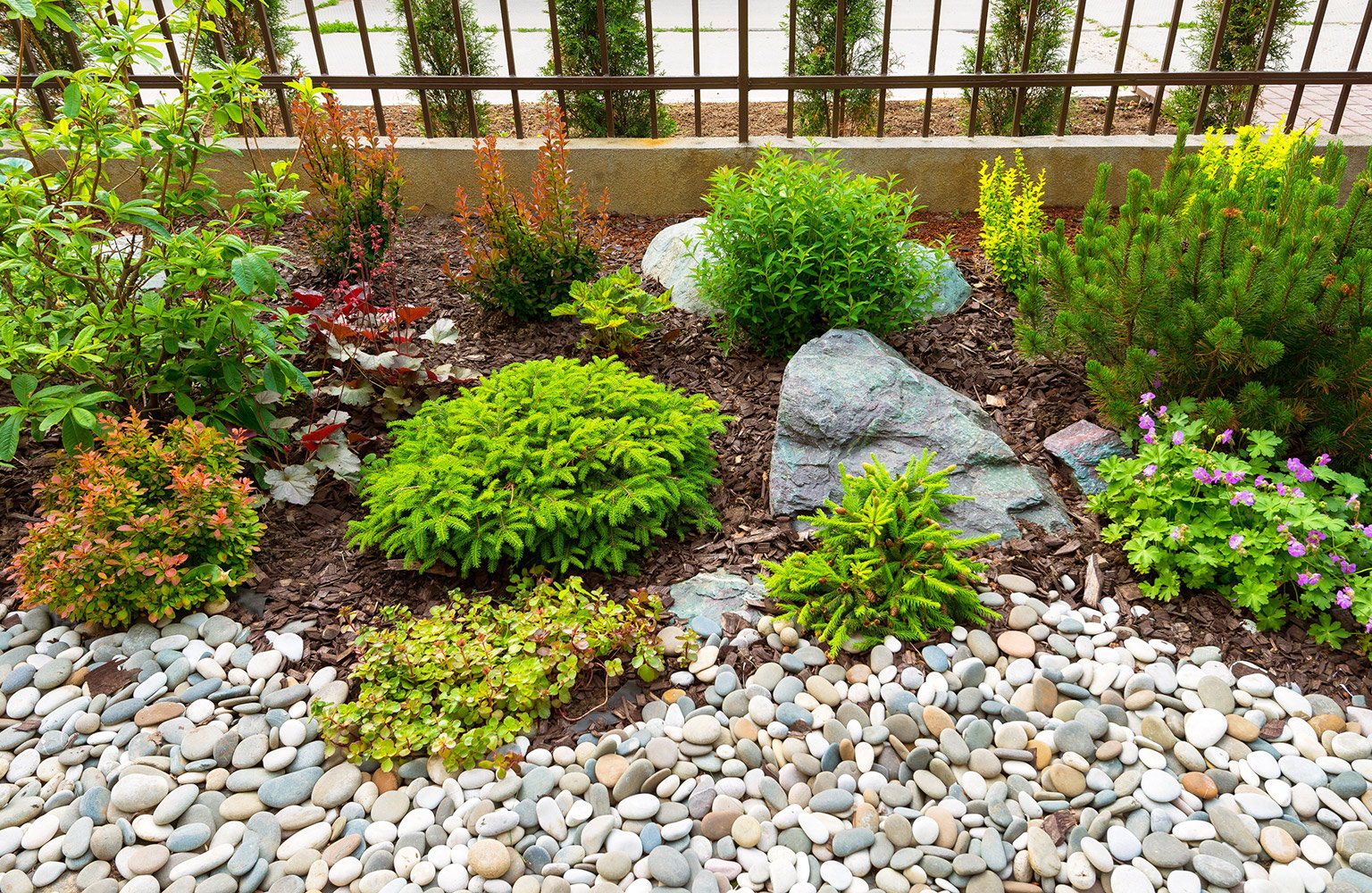
Pebbles introduce a smooth, satisfying texture to your walkway. They also look great as part of a rock garden or when surrounding pavers. You can also choose whether to buy tiny pebbles or larger ones to fit the aesthetic you’re going for. Pebbles cost around $1.80 per square foot.
Paver Walkway Ideas
Pavers come in many different materials, such as stone, concrete, bricks, and more. You can fit these slabs together in a range of patterns for your walkway.
8. Concrete Pavers
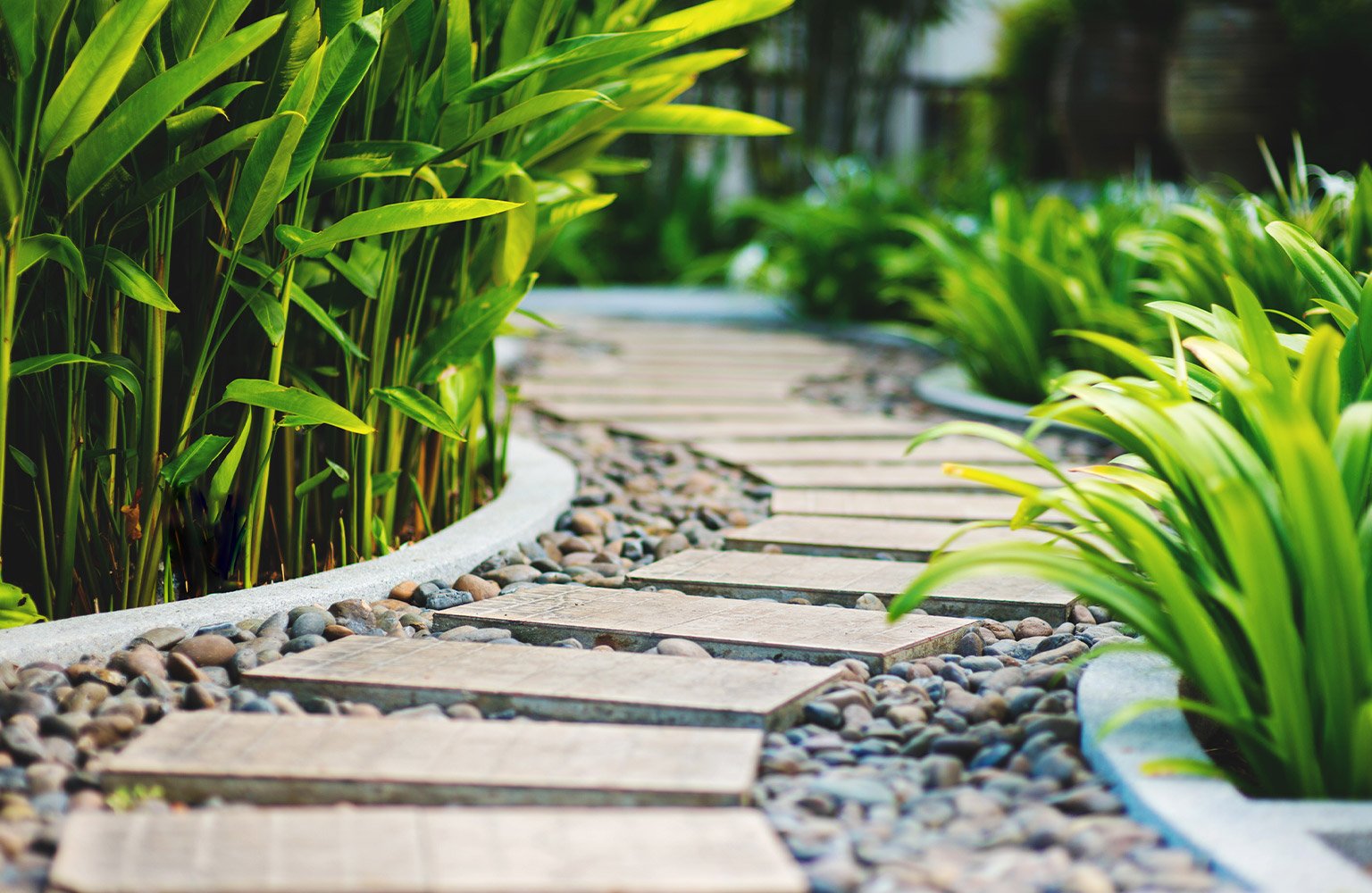
Square or rectangular slabs of plain concrete are sturdy, visually appealing, and don’t require a lot of upkeep. You can even grow grass in between concrete pavers to make this simple walkway option more appealing. The cost of concrete stone is around $8–$15 per square foot.
9. Stamped Concrete
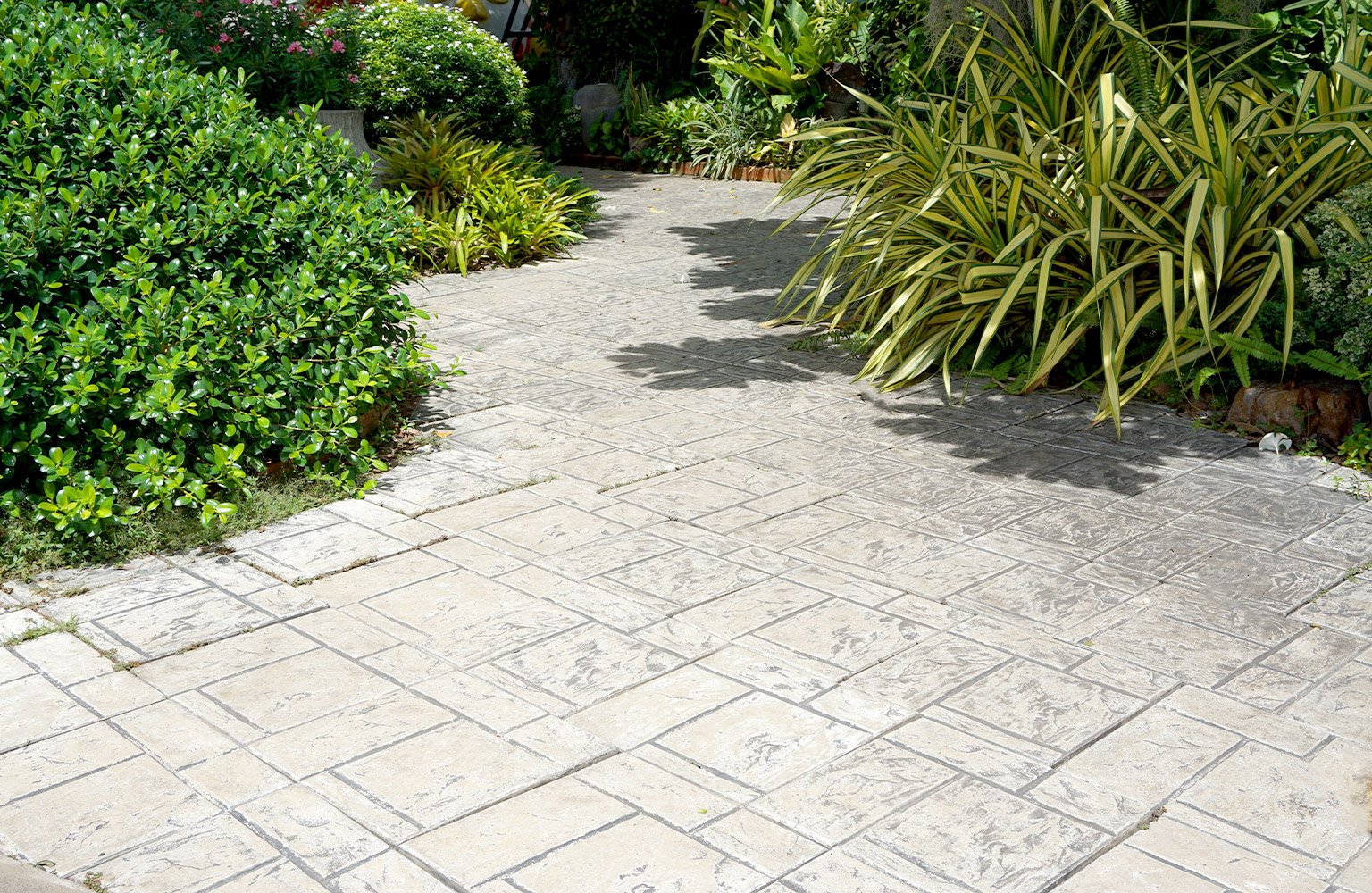
Stamped concrete is textured and colored to look like stone, tile, or other materials. This option is a great way to get the look of flagstone, for example, for a lower price tag. The cost of stamped concrete is between $8 and $28 per square foot. Stamped concrete is also highly durable, requiring little maintenance over time.
Low-cost Walkway Ideas
These low-cost walkway materials are easy on the wallet and perfect for the DIY lover who may want to install a simple walkway on a budget.
10. Mulch
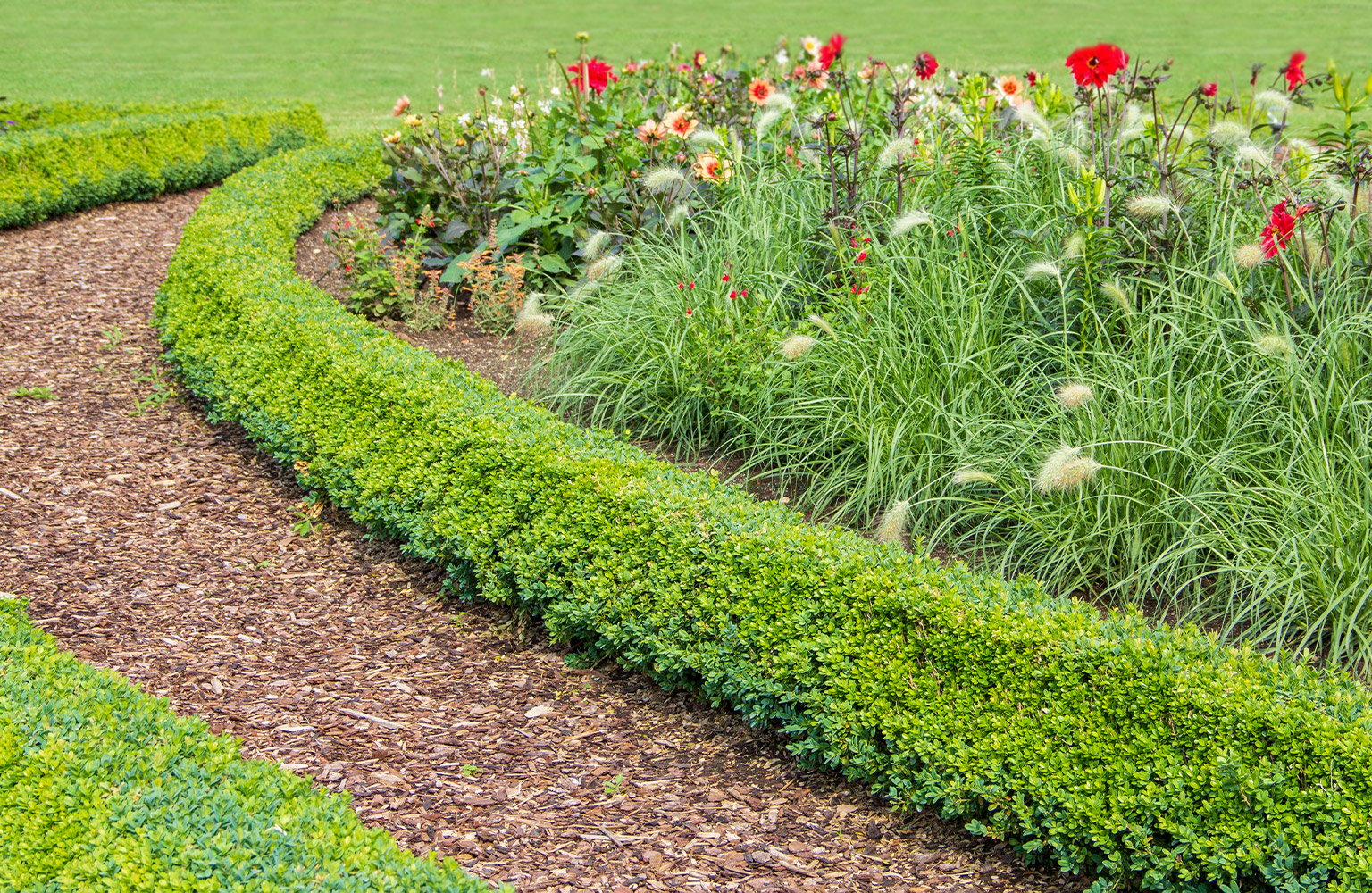
You don’t have to confine mulch to the garden; you can also spread it across the ground for a rustic and casual-looking path. Organic mulch like wood chips, bark, and cocoa beans are relatively inexpensive and good for the health of your yard.
If you choose mulch, just make sure to install plastic or metal edging around the walkway to keep it from getting kicked outside the path. Mulch delivery costs an average of $175, and low-end varieties can cost as little as $2 to $4 per bag.
11. Wood Pallet Boards

Another eco-friendly and low-priced walkway option is to recycle pallet wood. Detach all the boards, seal them with a coating of polyurethane to protect them from the elements, and line them along your desired path. You can even paint the boards in fun colors if you desire.
Wood pallets are exceptionally inexpensive, so you won’t have to break the bank for this one. Just contact a local business to see if they have any pallets left over from recent shipments, and you’ll have your materials for free.
12. Brick

From herringbone to basketweave to running bond, the pattern options are endless when it comes to brick pavers. The best part is that bricks are inexpensive, running from $4 to $8 per square foot.
13. Gravel
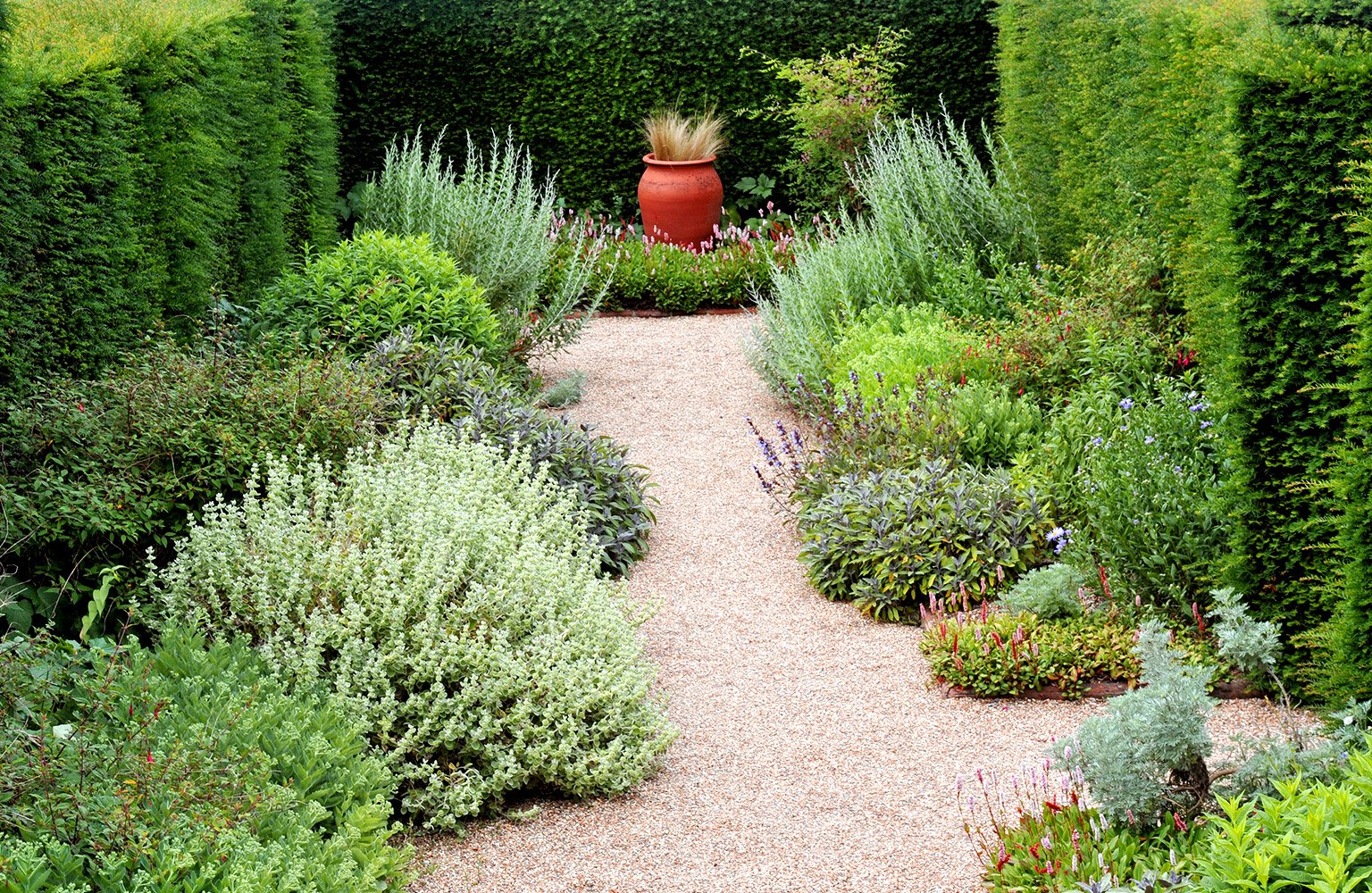
The perfect affordable material for driveways, gathering areas, and walkways, gravel is versatile, casual, and easy to install. You can surround stepping stones with gravel or simply lay it out as a winding trail through the backyard garden. Gravel only costs around $1 to $4 per square foot to install.
14. Tree Stumps or Logs
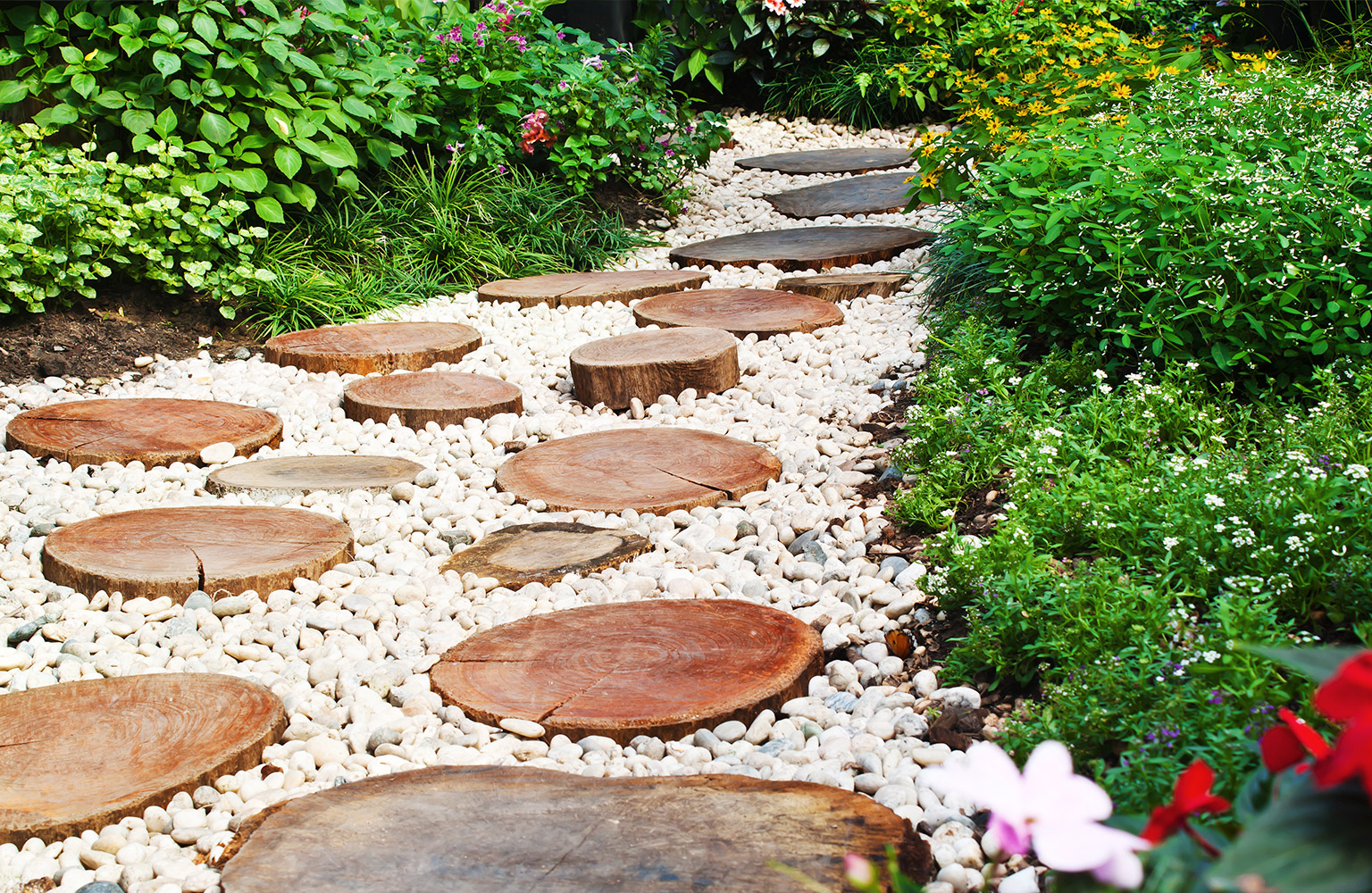
Wood stump slices make for natural and rustic-looking stepping stones, while leveled logs have a similar look to pallet wood, just a little more natural. If you’re unable to cut lumber yourself, contact a local forester or your state’s natural resources department to find access to free or cheap logs.
Unique Front Walkway Ideas
These creative and aesthetically pleasing options can add curb appeal, visual interest, and character to your front yard or entryway.
15. Mosaic
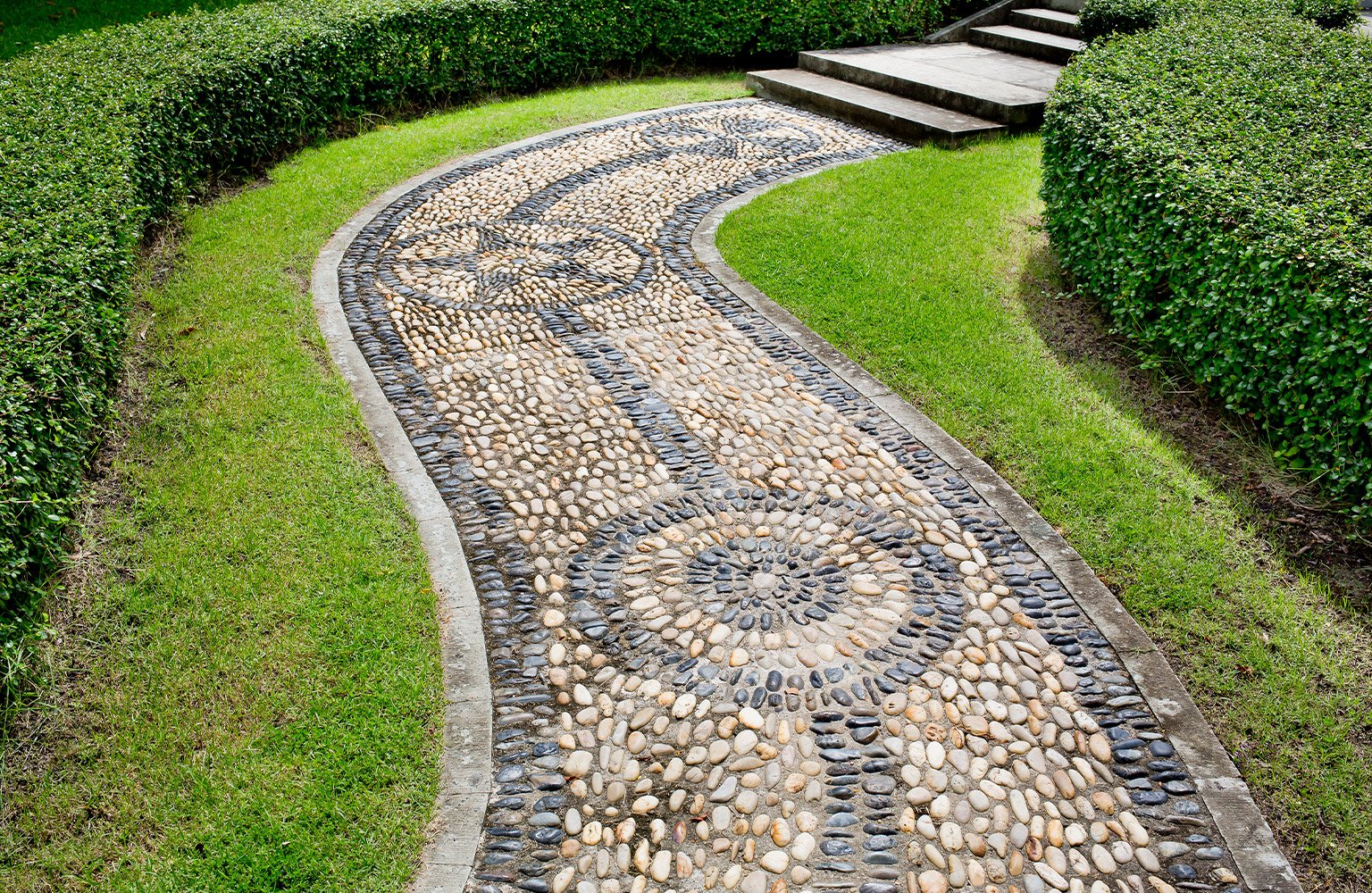
Pebble mosaics allow you to be creative. With collected stones, sea glass, and shells from the beach or river, you can design a mosaic pattern that’s completely unique. However, the placement must be exact to achieve the right look, so it’s best to get help with the installation from an experienced professional.
16. Marble Chips

With a look that’s similar to white gravel, marble chips glisten lightly in the sun and make for a pleasing walkway material. Marble chips cost around $2 per square foot and require edging to keep them in place, but their shine is undeniably elegant.
17. Sand
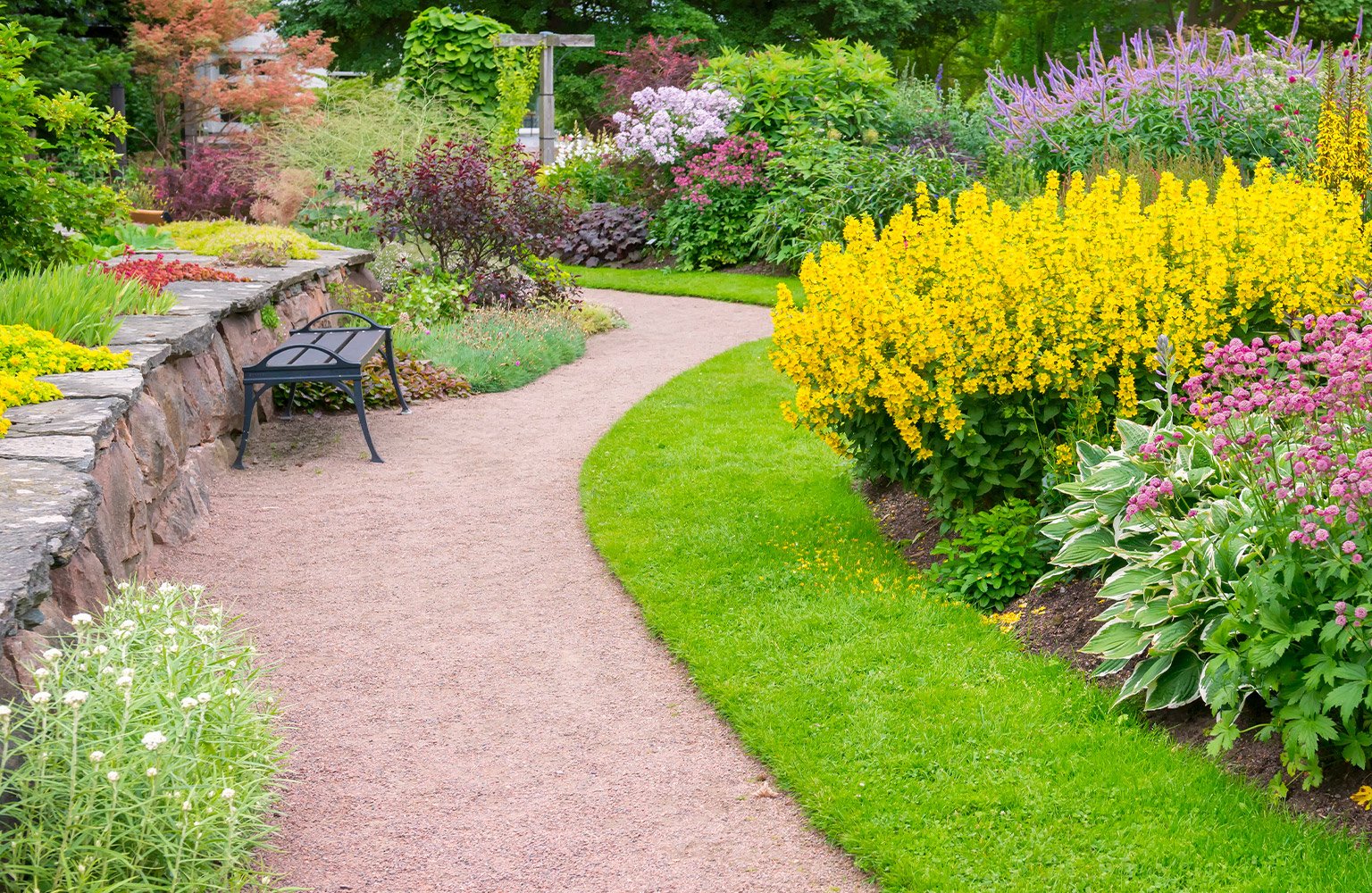
Because of its tendency to spread when walked on, sand isn’t the most practical option to line a path on its own. However, paver sand can be the perfect material to fill in between pavers or stepping stones. Paver sand or polymeric sand is a mixture of sand and additive materials to keep the stones stable. The cost of the sand and delivery can fall between $15 and $40 per cubic yard.
18. Glass Mulch
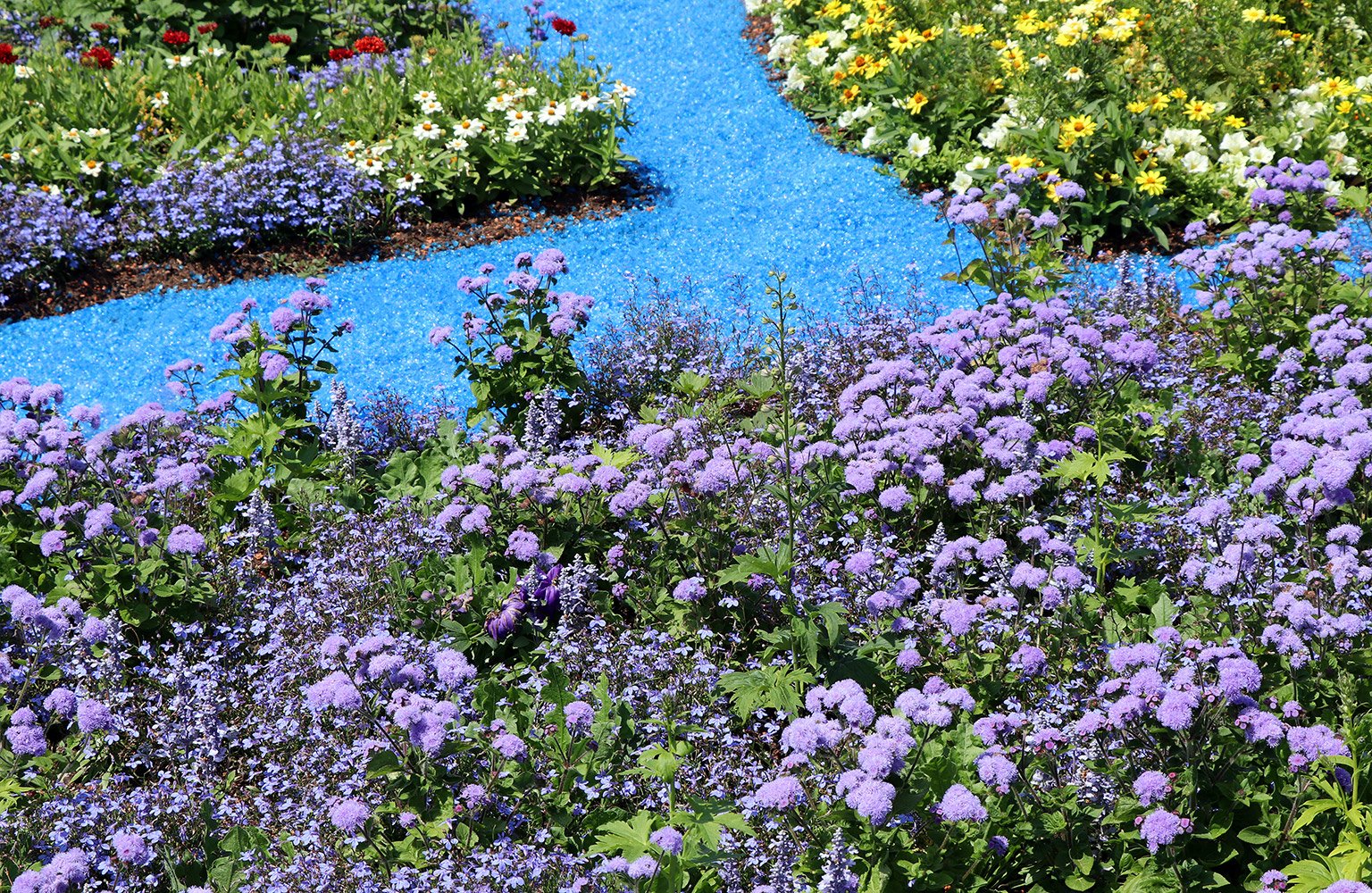
For a vibrant walkway that truly stands out, glass mulch or tumbled glass are great options. This material is made from recycled bottles that are tumbled in a machine to smooth out the sharp edges.
Common glass mulch colors are green, blue, and translucent, making for an eye-catching walkway. This is a great material to make your garden pop with color.
19. Ceramic Tiles

Often ornate and used to create striking patterns in patios and walkways, ceramic tiles are a more delicate yet beautiful choice. Installing ceramic tiles as your walkway can especially complement a Mediterranean-style house. The cost per square foot to install tile ranges from $7.50 to $9.75.
20. Bamboo

Bamboo is an eco-friendly material that, when weaved into different patterns, creates a tropical-looking walkway. It will complement a house that embraces pastels or other tropical themes on its exterior. Bamboo installation can cost around $3.80 per square foot.
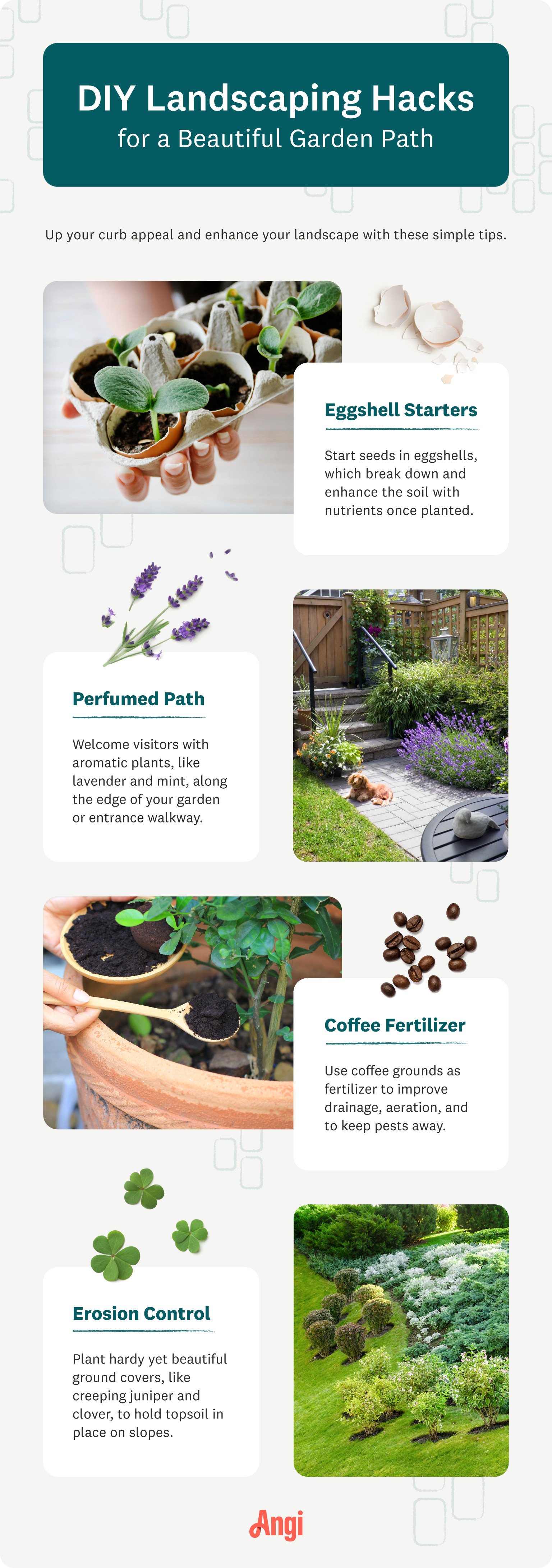
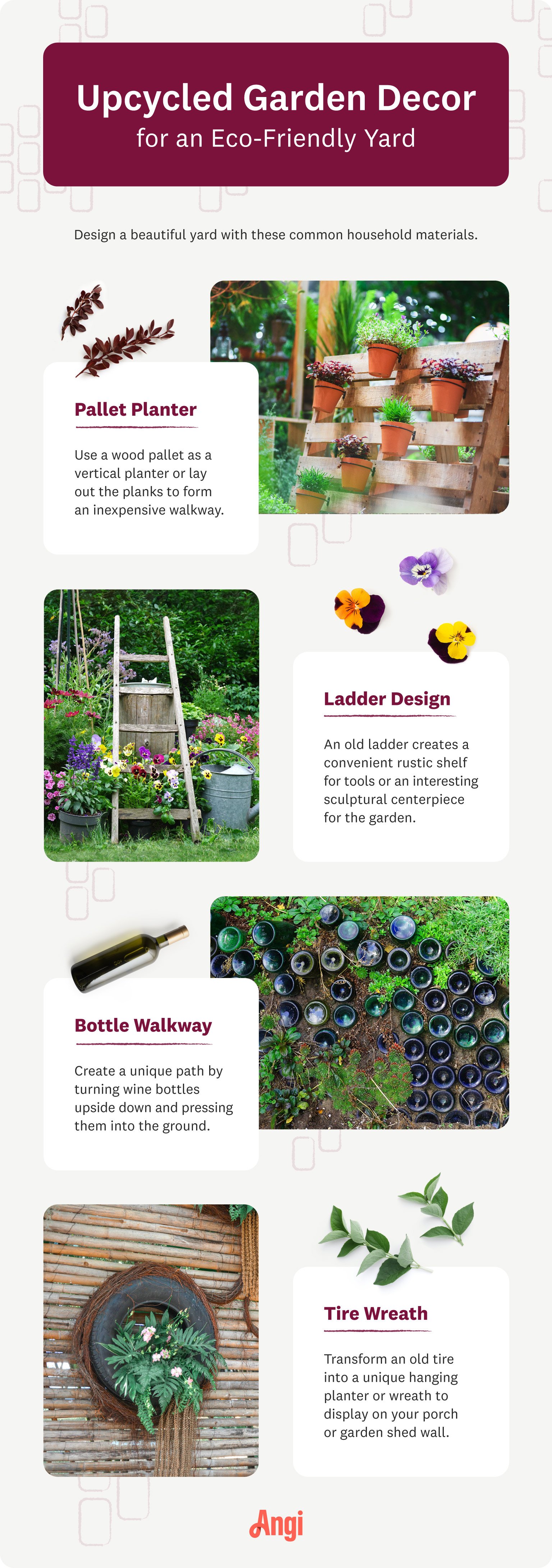
Maintain a Diverse Landscape
It’s important to diversify and layer the flowers, herbs, and vegetables that surround your garden walkway. Use the printable labels below to keep track of everything growing in your garden.
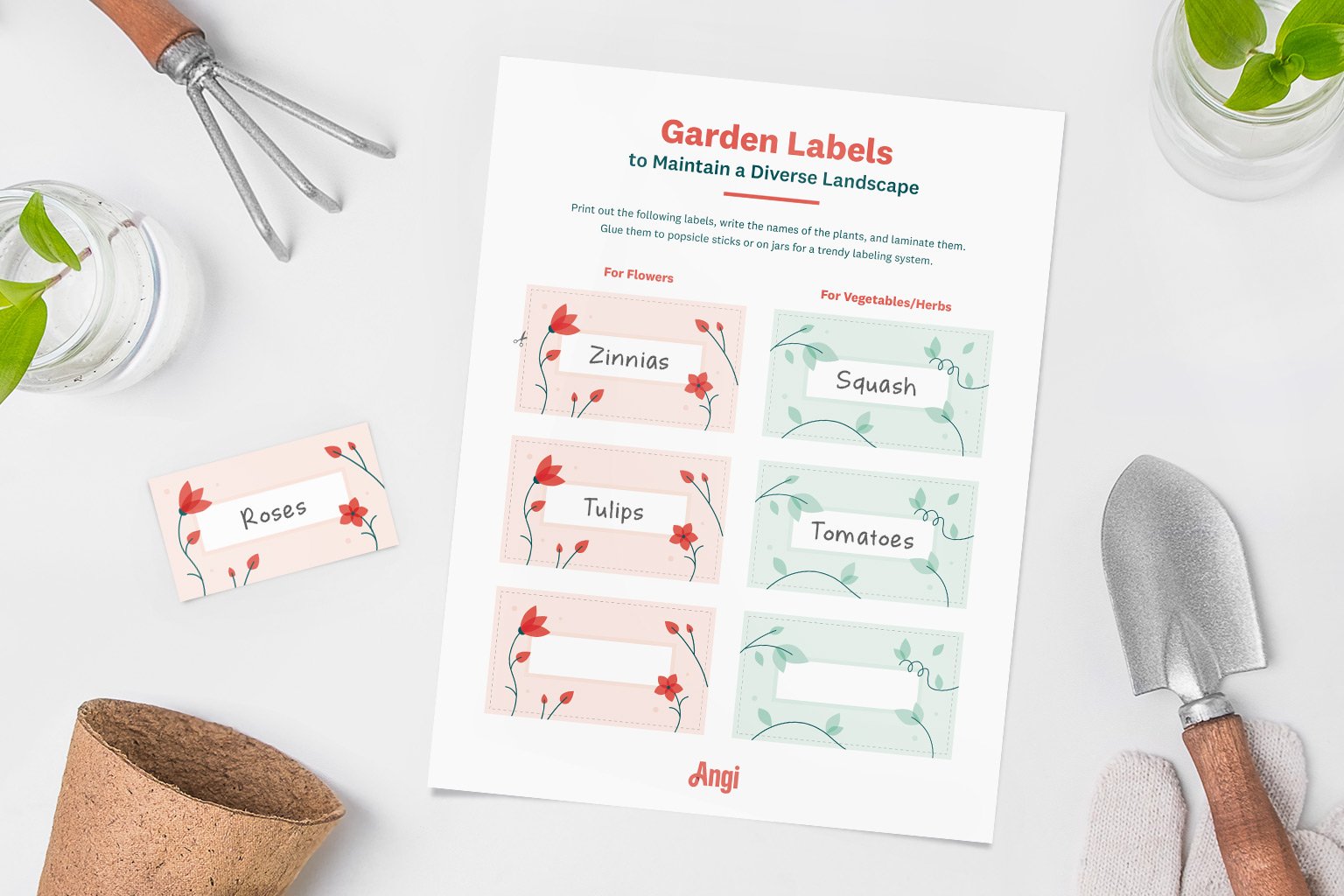
Download Garden Labels Here
Final Tips for Building a Walkway
As you plan your new walkway project, here are some important things to keep in mind:
Your house's style and color: Look to your house’s exterior for material and design inspiration.
The topography of your landscape: Do you have sloping areas that may require steps in your walkway? Hire a local landscaping company to help you come up with the best plan of action.
Walkway flow: Front walkways that lead to a formal entrance flow better when they form a sweeping curve across the yard.
Walkway width: Don’t make your walkway too narrow. Even if you don’t think you’ll need that much room to walk on, wider is usually better.
Some walkway ideas are more DIY-able than others. For example, stepping stone installation is one of the easiest options. It involves little more than planning the placement, digging up the sod in the shape of each stone with a trowel or sod cutter, and placing the stones in the ground.
A material like poured concrete, on the other hand, involves careful edging, excavating, leveling, smoothing, and curing— these steps require heavy-duty tools and may require a professional.
It’s important to carefully think through your walkway design to not only make the best first impression of your house but also to construct paths that are sturdy and maneuverable. To find out what’s doable in your space, get in touch with a hardscaping professional. Before long, you’ll wow passersby and visitors with a stunning trail through your yard.





- Landscapers
- Tree Surgeons
- Gardening Services
- Landscape Architects
- Sod Installation
- Tennis Court Contractors
- Landscape Design
- Retaining Wall Companies
- Grading Companies
- Landscape Rock & Sand Delivery
- Mulch Delivery Services
- Pond Companies
- Artificial Grass Companies
- Shrub Removal & Trimming
- Backyard Design Companies
- Commercial Landscaping
- Koi Pond Services
- Backyard Landscapers
- Trampoline Assembly
- Hedge Trimming
- Pond Services
- Garden Design
- Outdoor Plant Watering
- Putting Greens
- French Drains
- Turf Installation
- Sod Removal Services
- Lawn Repair Services
- Brush Chipping Services
- Hardscape Contractor
- Landscape Rock Removal
- 15 Stepping Stone Walkway Ideas for Backyards, Gardens, and More
- 15 Ideas to Boost Your Curb Appeal Using Pavers
- 28 Creative Rock Landscaping Ideas for Your Backyard
- Types of Pavers for Your Patio, Driveway, and Walkway
- 41 Backyard Landscaping Ideas for Next-Level Outdoor Living
- 47 Landscaping Ideas to Consider for Your Home
- 21 Front Yard Landscaping Ideas to Boost Your Curb Appeal
- Deciding Between Concrete, Stone, or Brick Pavers? Pros, Cons, and Cost Compared
- 10 Tips for Thoroughly Cleaning Paving Stones
- How to Lay Pavers Like a Pro and Create Your Dream Outdoor Space










